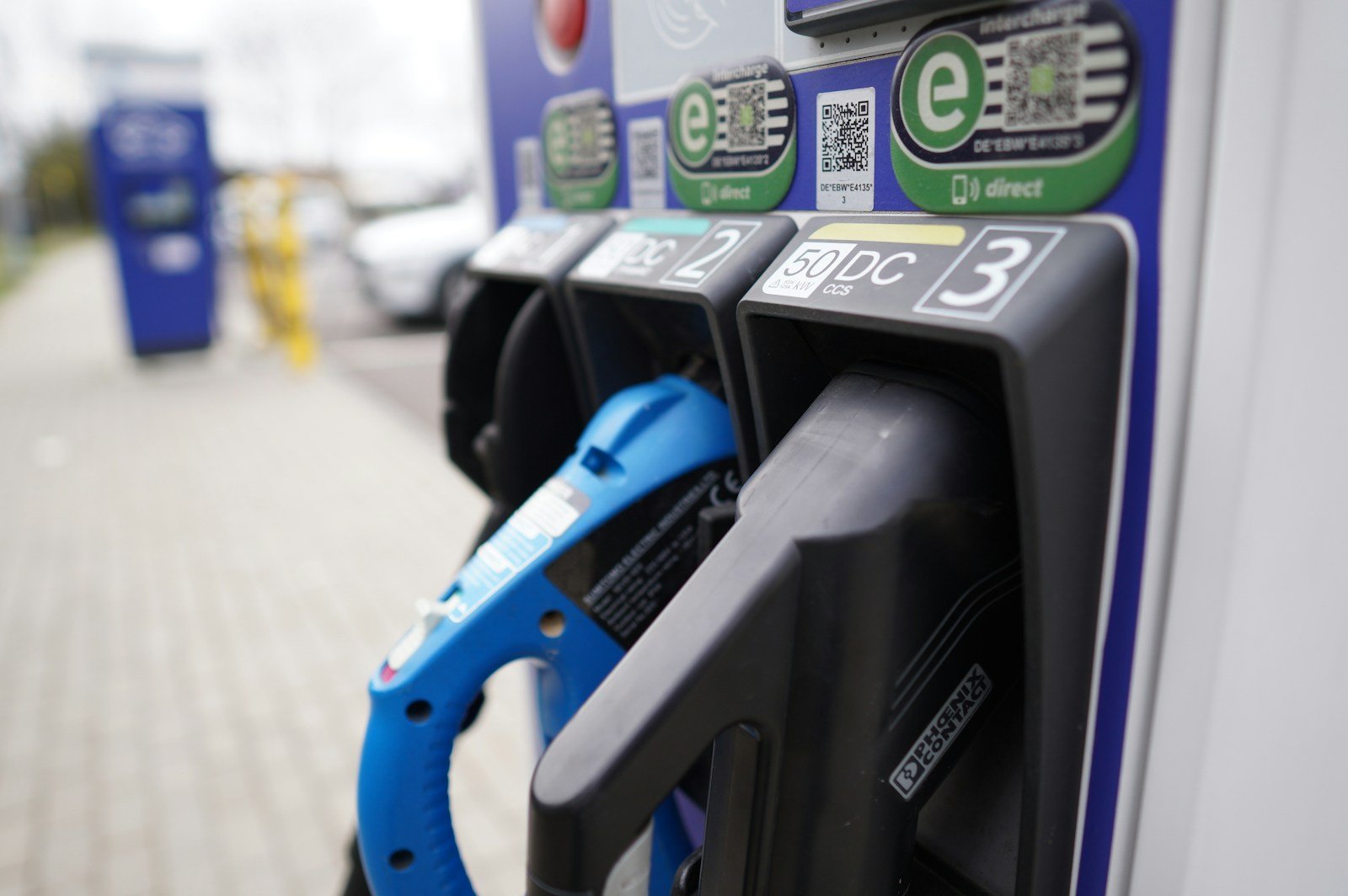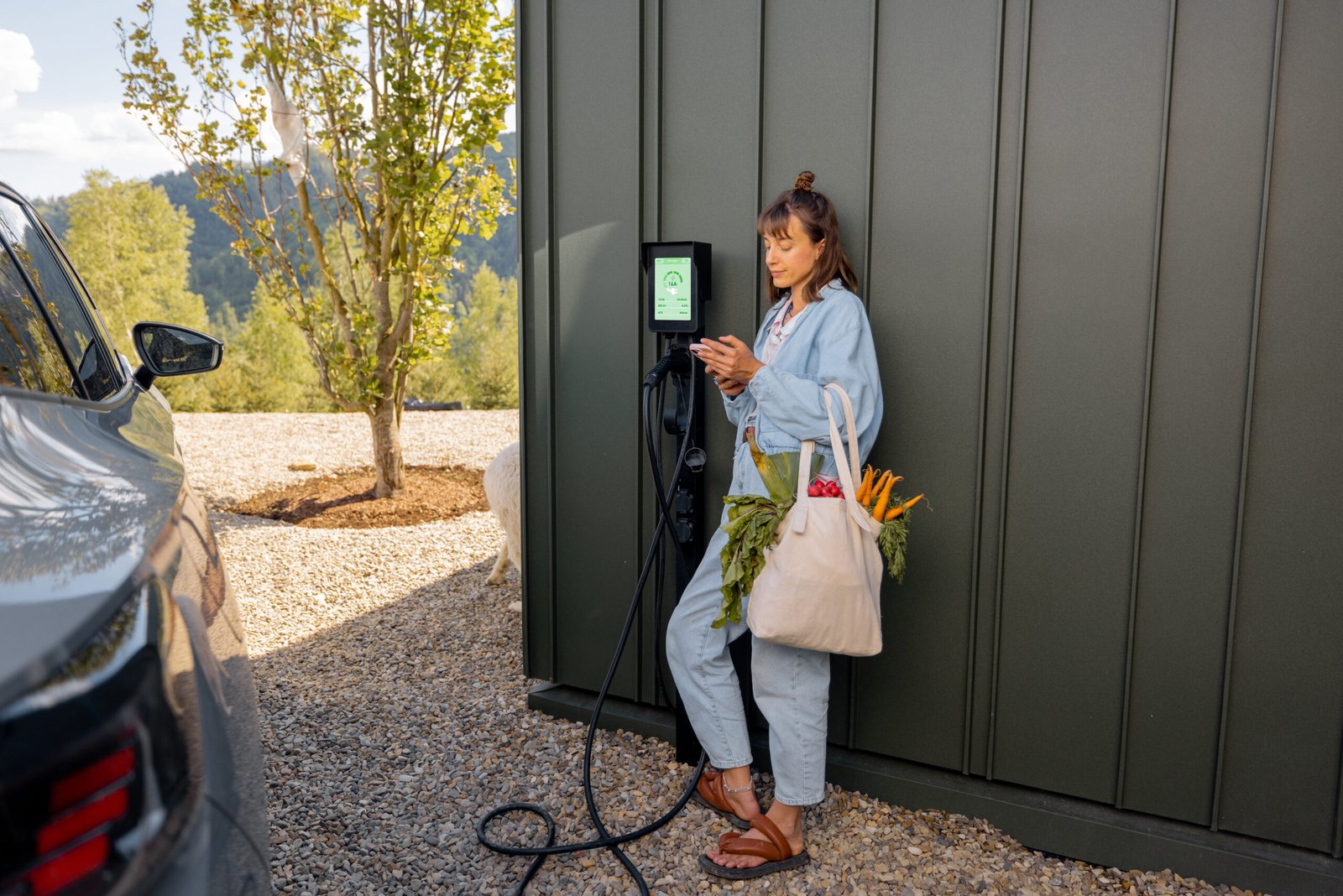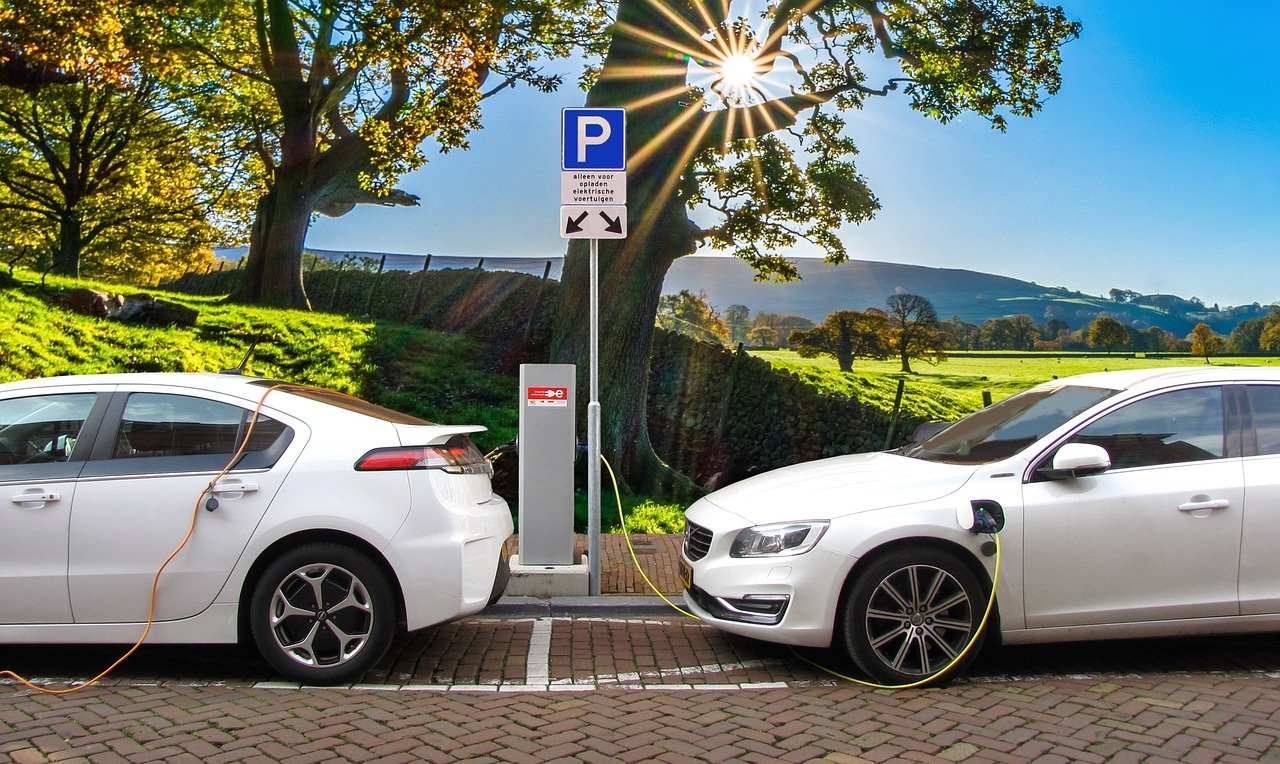With fossil fuels driving over 70% of global CO2 emissions, We have reached an era where every second counts! Environmental concerns are at the forefront of international discussions; hence, a shift towards Switching to Electric Vehicles represents a transformative step toward a sustainable future.
With the world grappling with the impact of climate change and pollution, transitioning to cleaner, more eco-friendly, and more efficient technological solutions is crucial. It not only promises to reduce our carbon footprint but also offers a vision of a world where air quality is significantly improved, dependence on fossil fuels is diminished, and energy is harnessed in more innovative and sustainable ways.
This blog post delves into the compelling reasons why embracing EVs is crucial, exploring their myriad benefits and the pivotal role they play in reshaping the future of transportation.
Driving the Future: Electrifying the Path to a Greener Planet
Imagine a world where every mile traveled contributes to a healthier planet—this isn’t just a dream but a responsibility we all share. The evolution to electric vehicles is more than just a shift in technology; it’s a call to action for each of us to redefine what’s possible in the fight against climate change.
By choosing this path, we can become stewards of hope, setting the wheels in motion for a future where our actions align with our values. Here’s a closer look at how they contribute to a healthier planet:
Climate Change Mitigation
Electric vehicles significantly cut down on carbon emissions, which is one of the direct causes of global warming. The traditional gasoline-powered automobile sector is a major contributor to greenhouse gas emissions, and the shift to EVs can play a crucial role in climate change mitigation. According to the International Energy Agency (IEA), worldwide EV adoption could reduce emissions by up to 1.5 gigatons annually by 2030. This transition presents a valuable opportunity to meet international environmental targets and slow down the pace of global warming.
Breathe Cleaner
One of the immediate benefits of EVs is the improvement in air quality. EVs do not emit exhaust pollutants, significantly reducing detrimental substances such as Nitrogen oxides (NOx) and particulate matter in the air. This reduction can lead to fewer respiratory diseases and health issues related to air pollution, providing a tangible and immediate improvement in public health.
Resource Efficiency
EVs are more energy-efficient than their gasoline counterparts. They convert a higher percentage of electrical energy from the grid to power the wheels. When powered by renewable energy sources, this efficiency further increases, creating a sustainable energy cycle. The US Environmental Protection Agency (EPA) provides guidelines to maximize the eco-friendly potential of EVs through renewable energy adoption.
Innovations in Battery Technology
The EV industry is making strides in developing eco-friendly battery disposal and recycling methods, which are critical to reducing the environmental footprint of battery production. Every second, the advancements in the tech industry are leading to a longer battery life, reduced reliance on rare materials, and more efficient recycling processes to maintain eco-balance. These innovations ensure that the environmental benefits of EVs extend beyond merely driving, impacting the entire lifecycle of the vehicle.
Supporting Resources
Numerous resources and organizations are available to guide consumers and manufacturers in enhancing the ecological impact of EVs. Clean energy organizations and the EPA offer support and guidelines to maximize the sustainable benefits of electric vehicles.
Overall, transitioning to electric vehicles offers numerous substantial environmental benefits, from reducing greenhouse gases to improving air quality and enhancing resource efficiency. Embracing this change is crucial for creating a sustainable future.
Visionary Voices: Global Insights on the EV Revolution

To truly understand Ev’s revolutionary prospect, insights from visionary leaders and thinkers worldwide is crucial.
Bill Gates, the renowned philanthropist and co-founder of Microsoft, asserts that “electric vehicles are essential in combating the adverse effects of climate change, given their ability to cut emissions drastically.” Leonardo DiCaprio, a celebrated actor and environmental activist, passionately advocates for clean energy solutions, stating, “The adoption of electric vehicles will be crucial for better ecological preservation.” Elon Musk, a pioneer in technological advancements, views electric vehicles as a “monumental step towards a sustainable future.”
Diverse perspectives are also crucial beyond the corporate sphere. Stephen Hawking, a visionary physicist whose legacy extends far beyond his scientific achievements, envisioned renewable technologies, including electric autos, as “essential for humanity’s long-term survival on Earth.”
Environmentalist David Suzuki emphasizes that electric vehicles “advance clean energy transitions,” while former U.S. President Barack Obama remarked, “Reducing fossil fuel dependence through electric mobility innovations is key to a more secure and sustainable energy future.” These voices collectively illustrate a global consensus- transitioning to electric vehicles is not merely a trend but an essential shift toward sustainability, reimagining our future energy landscape.
Countries like Canada are introducing incentives and targets to encourage EV adoption, aiming for 100% of new car sales to be zero-emission by 2035. Leading scientists and economists advocate the transition to EVs as a critical step in combating climate change and achieving sustainability goals.
Is Canada Ready for an Electrified Automotive Era?

Canada stands at the threshold of a transformative shift in its automotive landscape, ready to embrace the electrified automotive era. The country is making substantial investments to bolster its EV infrastructure, including expanding charging networks across urban and rural regions, which is crucial for supporting widespread EV adoption.
Collaborations between the government and private sectors aim to enhance the availability of charging stations, address range anxiety, and promote consumer confidence in EV technology. Furthermore, Canadian policies and incentives, such as tax rebates and vehicle subsidies, are designed to make electric vehicles more accessible and financially attractive to the general public.
The automotive industry in Canada is also adapting, with automakers increasing their portfolios of electric models to meet growing consumer demand and regulatory requirements. Moreover, Canada’s rich resources in minerals like lithium and cobalt present opportunities for building domestic supply chains for battery production.
These initiatives reflect a strategic vision to position Canada as a leader in sustainable transport. They signal that the country is well on its way to fully embracing an electrified automotive future.
Tackling Challenges and Rebuttals

The crucial decision about switching to electric vehicles often faces challenges like range anxiety and charging infrastructure concerns. However, advancements in battery technology and the expanding network of charging stations effectively address these issues, making EVs a more viable and sustainable choice for the future.
Following are some widely arisen challenges and rebuttals regarding the transition to electric vehicles:
Exclusive to the Wealthy?
It is true that EVs initially cost more, restricting them to those with financial means. However, prices are dropping due to technological advancements and increased production. Long-term savings on fuel and maintenance make them cost-effective compared to traditional cars.
Limited Range and Charging Infrastructure
EVs face challenges with restricted range and limited charging points. However, battery improvements are increasing range, and investments are expanding the charging network to support more EVs.
Resource Constraint
The environmental impact of extracting materials for EV batteries is a concern. To reduce these effects, the industry is improving sustainable mining and recycling practices and researching alternative battery materials. The greater good is also a big issue here.
A Threat to the Existing Job Industry?
The transition to EVs may affect traditional automotive jobs, but it also creates new opportunities in EV manufacturing, infrastructure, and renewable energy, promoting upskilling and a sustainable job market.
Energy Source Dependency?
Electric vehicles (EVs) can depend on non-renewable energy. Still, the shift to clean energy is increasing the renewable share in the grid, enhancing EVs’ environmental benefits, and supporting sustainable transportation.
Conclusion: Switching to Electric Vehicles
As we stand on the brink of a new era in transportation, the call to electrify our journeys is not just an invitation—it’s a challenge to rethink the road ahead. Imagine a world where your daily drive helps sculpt a cleaner skyline and fuels innovation. With government incentives and rebates, the cost of installing an EV charger has also become affordable.
Hence, be a trailblazer—shift gears to an electric vehicle and help pave the path to a sustainable tomorrow. Ready to spark change? Dive into the electrifying experience of EVs and transform your ride into a revolution. Start your journey today and be the change-maker our planet needs!
FAQ- Thinking of Switching to EV?
What are the financial incentives for buying an electric vehicle in Canada?
Canadian consumers can benefit from federal incentives of up to $5,000 for eligible electric vehicles. Additionally, several provinces offer their own incentives, such as rebates in Quebec and British Columbia, which can further reduce the cost.
How extensive is the charging infrastructure in Canada?
Canada’s charging network is growing, with thousands of charging stations nationwide. Charging infrastructure is well-developed along major highways, and urban areas continue to expand their capacity with more public charging points.
How does the Canadian climate affect electric vehicle performance?
Cold weather can reduce battery efficiency and range. However, many EVs available in Canada come equipped with features like battery heaters and thermal management systems that help maintain performance during the winter months.
How much can I save by switching to an electric car?
Switching to an electric car can lead to significant savings, particularly in fuel and maintenance costs. On average, EV owners can save up to $1,000 annually on fuel, depending on electricity rates and driving habits. Maintenance costs are generally lower due to fewer moving parts and no oil changes.
How long does it take to charge an electric vehicle?
Charging time varies depending on the charger type. Level 1 chargers (standard outlets) take 8-12 hours, while Level 2 chargers (public or home-installed) take 3-8 hours. Fast chargers can provide an 80% charge in about 30 minutes.
What are the costs associated with installing a home EV charger in Canada?
The cost of installing a home EV charger can vary based on the type of charger and electrical work required. On average, Level 2 home chargers range from $700 to $1,500, including installation. Some provinces, like Quebec, offer rebates to offset these costs, making home charging more accessible.
What are the requirements for installing a commercial EV charger in Canada?
Installing a commercial EV charger typically requires a site assessment to determine electrical capacity and optimal placement. Businesses need to ensure compliance with local electrical codes and may need to upgrade their electrical infrastructure. Incentives and grants are available in some provinces to support commercial EV charger installation.
What are the benefits of installing an EV charger at home or commercially?
For home installations, having a personal EV charger offers convenience and the ability to charge during off-peak hours, potentially reducing electricity costs. Commercial installations can attract EV-driving customers, enhance brand image, and contribute to sustainability goals. Additionally, businesses may benefit from increased customer dwell time and satisfaction.






